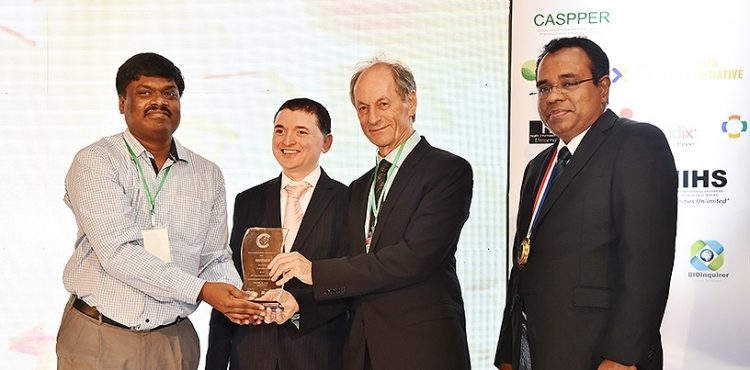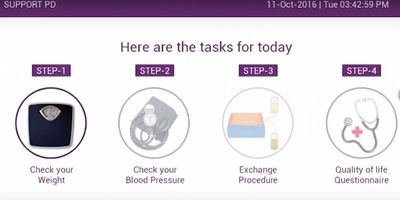
SUPPORT PD: using medical informatics to manage chronic kidney disease
Bringing together skills in both medical and computer sciences, the George Institute for Global Health India has launched a unique mobile phone-based application for remote monitoring and management of those undergoing home based peritoneal dialysis.
The app which assists in self-monitoring of kidney health from the comfort of their own homes has been selected for presentation at the Asia Pacific Association of Medical Informatics Conference (APAMI 2016) from Nov 2 to 5, 2016 in Seoul, South Korea.
Connecting the Dots for Better Health through Informatics is the theme of the APAMI 2016 conference and it aims to encourage researchers, surgeons, practitioners, young scientists, healthcare workers and suppliers in the world to cooperate and share knowledge and experiences with each other about how to use medical technology to improve medical information of the people.
“The reason why SUPPORT PD has been selected is because it is innovative and really disruptive in its approach to chronic disease monitoring and self-management and at the core of it is information technology,” says Dr. Oommen John, Senior Research Fellow, George Institute for Global Health, India.
Medical informatics is found at the intersection of healthcare and technology. It is where skills in both medical and computer sciences come together in an effort to improve healthcare and patient outcomes. Professionals in this hybrid field draw on expertise from both disciplines to put technology to its best use in patient care, clinical and research settings.
SUPPORT PD, as the m-health application is called, works as a companion for people with end-stage kidney failure on self-dialysis. The app helps people to be in control of their health, know what is happening and in real-time and receive real time assistance through an automated evidence-based clinical decision support system developed by experts. The system is able to pre-empt development of complications by detecting them early and be in constant communication with care providers.
“Nearly two lakh Indians require renal replacement therapy each year for end-stage kidney failure,” says Dr. Vivekanand Jha, Executive Director of the George Institute for Global Health India. “The popular and often recommended treatment for these patients is hemodialysis, though home-based peritoneal dialysis would be a more convenient option with minimum disruption to one’s daily activities,” he adds.
The mobile application has been field tested on patients undergoing peritoneal dialysis over a period of six months. The SUPPORT PD app provides a virtual simulation of the actual care provision scenario. Qualitative methods were used to evaluate the perception and acceptability of the application by patients and their clinical care providers - primary care physicians and nephrologists.
“The common perception in India is that it is better to have dialysis under the supervision of a care provider rather than go for self-managed peritoneal dialysis. This affordable and patient-centred app will hopefully reverse that,” says Dr. John.
“In the next phase, we aim to deploy the concept of “Internet of Things” to connect the app to wearable and environmental sensors for closer automated monitoring of the treatment. This will allow evaluation of parameters and indicators most relevant for self-monitoring and also provide the caregivers a real-time analytics for home-based management,” informs Dr. John.




